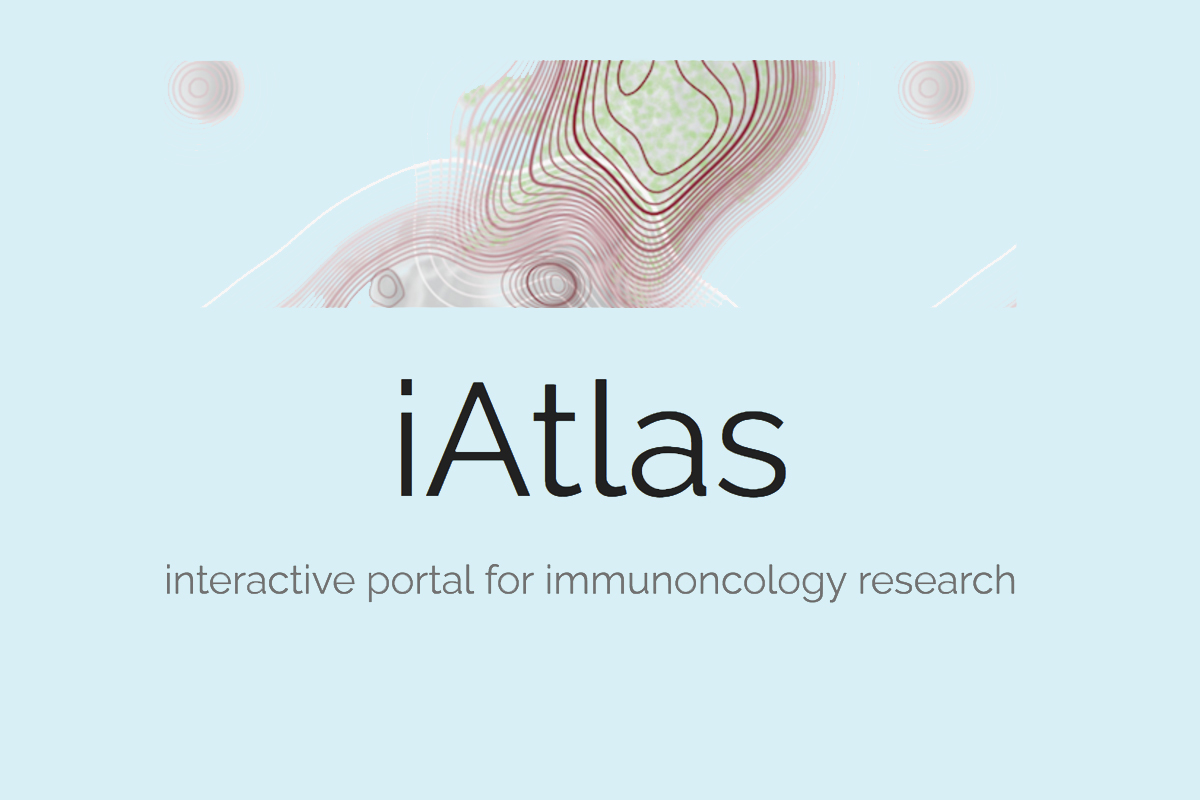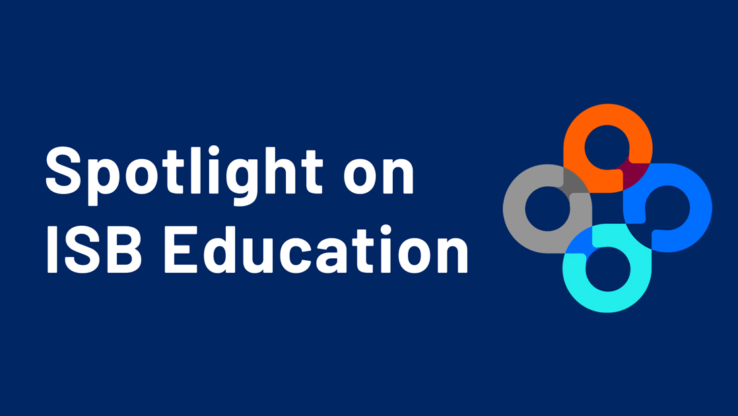Cancer Research Institute, ISB, Sage Bionetworks Unveil Comprehensive Immunotherapy Tool
 isbscience.org/news/2018/04/05/isb-cri-sage-unveil-iatlas-immunotherapy-tool/
isbscience.org/news/2018/04/05/isb-cri-sage-unveil-iatlas-immunotherapy-tool/
Cancer Research Institute iAtlas Poised to Improve Patient Outcomes by Providing Researchers Greater Access to Genomics Data
FOR IMMEDIATE RELEASE
NEW YORK and SEATTLE – April 5, 2018 – The Cancer Research Institute (CRI), Institute for Systems Biology (ISB) and Sage Bionetworks – three organizations on the forefront of cancer immunotherapy, systems biology and bioinformatics – today announced the release of the Cancer Research Institute iAtlas, a comprehensive web-based tool that allows oncologists and researchers to study and analyze interactions between tumors and the immune microenvironment.
CRI iAtlas is a bioinformatics tool that harnesses immunogenomic data, which were recently published in the journal Immunity. The data are a result of the PanCancer Atlas initiative, the final phase of The Cancer Genome Atlas (TCGA), which investigates more than 10,000 tumor samples across 33 cancer types.
“The Cancer Research Institute, having funded transformative immuno-oncology research for 65 years, decided to support the establishment of an open access database because of the potential impact this tool could have across the field. We expect that the CRI iAtlas will help to accelerate discovery and improve patient outcomes by providing researchers greater access to genomics data to better understand the immunological characteristics of the tumor microenvironment and its potential impact on patient responses to immunotherapy,” said Jill O’Donnell-Tormey, Ph.D., CEO and director of scientific affairs at CRI. “As the CRI iAtlas evolves, we would like to see it become the central repository for this crucial immunogenomics data.”
“The CRI iAtlas tool is the latest iteration of ISB’s focus on providing data resources and visualizations to the research community,” said Ilya Shmulevich, Ph.D., professor at ISB and a core member of the TCGA and iAtlas projects. “With iAtlas, results from the new TCGA study can be harnessed to investigate the immune responses shared among different types of tumors and to explore how immune responses relate to genomic and clinical phenotypes.”
The iAtlas platform is a community resource that opens up previously difficult-to-obtain insights to research organizations of all sizes.
“We are grateful to CRI and the hundreds of researchers who have contributed to this important resource,” said Justin Guinney, Ph.D., vice president of computational oncology at Sage Bionetworks. “The CRI iAtlas platform provides an intuitive and powerful set of web tools that facilitate data exploration and access to an extensive set of immune characterized samples from TCGA.”
Media contacts
Joe Myxter, joe.myxter@isbscience.org, 206.732.2157
Brian Brewer, bbrewer@cancerresearch.org, 212.688.7515 x242
Diane Gary, diane.gary@sagebase.org, 206.667.3038
About the CRI iAtlas
The Cancer Research Institute (CRI) iAtlas (www.cri-iatlas.org) is an interactive web-based platform and set of analytic tools for studying interactions between tumors and the immune microenvironment. These tools allow researchers to explore associations among a variety of immune characterizations as well as with genomic and clinical phenotypes. The initial version of CRI iAtlas is based on an analysis performed by The Cancer Genome Atlas (TCGA) Research Network on the TCGA data set comprising over 10,000 tumor samples and 33 tumor samples (Thorsson et al. Immunity, 2018). In this analysis, each tumor sample was scored for a variety of readouts for immune response, such as immune cell composition, adaptive cell receptor repertoire, neoantigen load, and expression of genes coding for immunomodulatory proteins. The web tool allows research to explore these data readouts, and the relation between them in TCGA tumor types and in overarching immune subtypes identified in the study. The CRI iAtlas is made possible through a collaboration between the Cancer Research Institute, Sage Bionetworks and the Institute for Systems Biology.
About the Cancer Research Institute
The Cancer Research Institute (CRI), established in 1953, is the world’s leading nonprofit organization dedicated exclusively to transforming cancer patient care by advancing scientific efforts to develop new and effective immune system-based strategies to prevent, diagnose, treat, and eventually cure all cancers. Guided by a world-renowned Scientific Advisory Council that includes three Nobel laureates and 26 members of the National Academy of Sciences, CRI has invested $357 million in support of research conducted by immunologists and tumor immunologists at the world’s leading medical centers and universities, and has contributed to many of the key scientific advances that demonstrate the potential for immunotherapy to change the face of cancer treatment. Learn more at www.cancerresearch.org.
About Sage Bionetworks
Sage Bionetworks is a nonprofit biomedical research organization, founded in 2009, with a vision to promote innovations in personalized medicine by enabling a community-based approach to scientific inquiries and discoveries. Sage Bionetworks strives to activate patients and to incentivize scientists, funders and researchers to work in fundamentally new ways in order to shape research, accelerate access to knowledge and transform human health. It is located on the campus of the Fred Hutchinson Cancer Research Center in Seattle, and is supported through a portfolio of philanthropic donations, competitive research grants, and commercial partnerships. More information is available at www.sagebase.org.
About the Institute for Systems Biology
The Institute for Systems Biology is a nonprofit biomedical research organization based in Seattle. It was founded in 2000 by systems biologist Leroy Hood, immunologist Alan Aderem, and protein chemist Reudi Aebersold. ISB was established on the belief that the conventional models for exploring and funding breakthrough science have not caught up with the real potential of what is possible today. ISB serves as the ultimate environment where scientific collaboration stretches across disciplines and across academic and industrial organizations, where our researchers have the intellectual freedom to challenge the status quo, and where grand visions for breakthroughs in human health inspire a collective drive to achieve the seemingly impossible. Our core values ensure that we always keep our focus on the big ideas that eventually will have the largest impact on human health. ISB is an affiliate of Providence St. Joseph Health, one of the largest not-for-profit health care systems in the United States.
To download the official press release, please click here.
###




